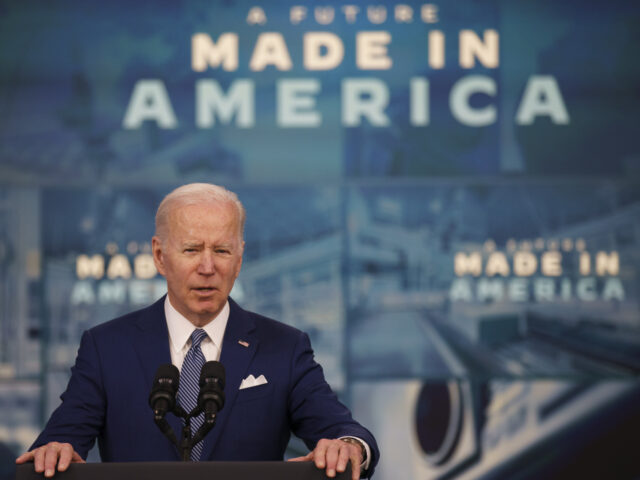EU officials have lashed out at plans aimed at pushing domestic manufacturing in the United States over accusations that it harms the bloc’s interests.
Multiple EU bigwigs in Brussels and beyond have reacted angrily to the United States’ Inflation Reduction Act (IRA), with it being claimed that the plan — which is partly aimed at boosting domestic manufacturing — distorts the international market and violates World Trade Organisation rules.
Starting under the Donald Trump presidency, trade relations between the European Union and the United States have soured significantly, with the then-American head of state arguing that tariffs implemented by Brussels put the U.S. at a disadvantage and that further emphasis needed to be placed on pushing domestic manufacturing.
The Joe Biden administration — despite being frequently criticised for implementing measures that can be circumvented by major corporations — has seemingly continued this trend of backing U.S. manufacturing, with the Democrat president himself frequently using the “Made in America” slogan while communicating with the press.
While seemingly watered down since the Trump era, Biden’s milquetoast approach to protectionism has nevertheless been enough to draw the ire of the European Union, with Commission President Ursula von der Leyen accusing Democrats of distorting the world market to their advantage.
“We must take action to rebalance the playing field where the IRA and other measures create distortions,” she said, amid fears the U.S. scheme could draw businesses away from Europe.
“In other words: we need to do our homework here in Europe and at the same time, we have to work with the United States to mitigate competitive disadvantages,” von der Leyen went on to say.
Others were not quite so diplomatic in voicing their displeasure in regard to the Made in American manufacturing push, with the head of the EU trade committee, Bernd Lange, calling for the bloc to sue the United States for allegedly breaking World Trade Organisation rules.
Noting that he does not think a “negotiated solution” will be possible, he said that it was important for Brussels “to quickly file a complaint with the WTO in the next few months”, arguing that it was “clear” that “what the US is doing is clearly incompatible with WTO rules”
The European Union’s fear that actions from the Biden administration could put it at a sizable disadvantage in terms of international trade marks a significant departure from the previous status quo.
For a long time, many thought it was in fact the United States that was getting the short end of the stick, with EU nations said to have been taking advantage of their trade arrangements with the U.S.
This was a major theme during President Donald Trump’s early years in office, with the then-leader accusing the transnational organisation of having been “formed to take advantage of the United States”.
For example, back in 2019, Statista reported that cars manufactured within the European Union that were imported into the United States were hit with a 2.5 per cent tariff, despite the fact that American-made vehicles were crippled with a 10 per cent charge when brought into the EU.
Since then, however, the United States has repeatedly slapped new tariffs on EU imports, with rumours now whirling that a trade war between the two powers could be on the cards.
But with the entirety of Europe reeling as a result of an ongoing energy crisis — the natural result of both the Ukraine War and the bloc’s green policies — there are questions as to how effectively such a hostile trade situation could be fought by Brussels.
For example, due to the surging price of gas and electricity, European authorities now fear many manufacturers will leave for greener pastures in the United States, where energy prices are far lower.
“At the moment [energy prices] are up to ten times higher than in the USA,” Lange remarked, saying that the EU has to step in and do something if it wants to remain competitive internationally.

COMMENTS
Please let us know if you're having issues with commenting.